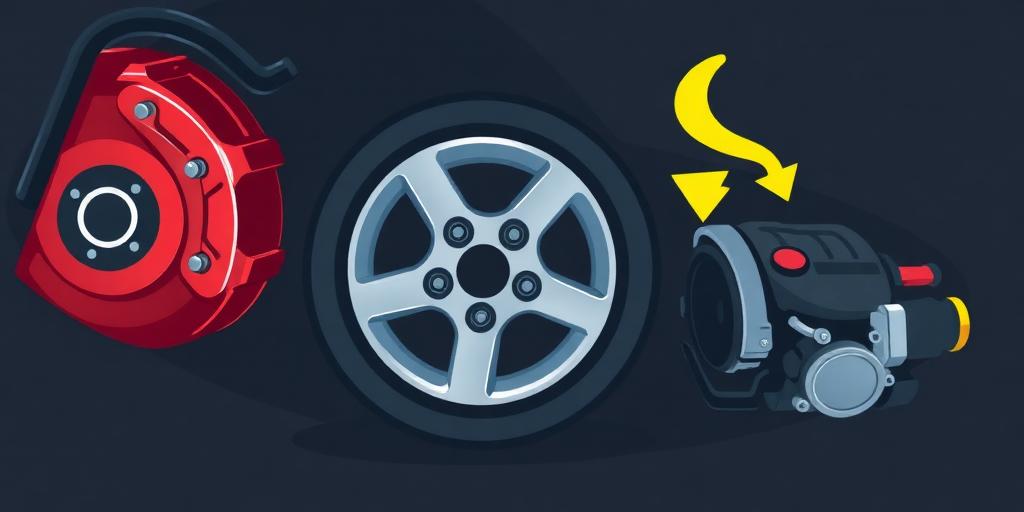10 Driving Habits That Damage Your Car
As drivers, we often develop habits behind the wheel, some good, some not so good. While some habits might seem harmless, they can slowly but surely inflict damage on your vehicle, leading to costly repairs down the line. Here are ten driving habits that can damage your car:
1. Riding the Brakes
Constantly keeping your foot on the brake pedal, even lightly, causes excessive wear and tear on your brake pads and rotors. It also increases the risk of overheating your brakes, reducing their effectiveness.
2. Ignoring Warning Lights
Dashboard warning lights are there for a reason. Ignoring them can turn a minor issue into a major, expensive problem. Address any warning light promptly to prevent further damage.
3. Neglecting Fluid Checks and Changes
Fluids like oil, coolant, brake fluid, and transmission fluid are essential for your car's proper functioning. Neglecting fluid checks and changes can lead to overheating, engine damage, and transmission problems.
4. Poor Gear Shifting (Manual Transmissions)
Improper clutch use and gear shifting in manual transmissions can cause premature wear on the clutch, transmission gears, and synchronizers. Smooth and precise shifting is key to prolonging the life of your transmission.
5. Speeding Over Speed Bumps and Potholes
Hitting speed bumps and potholes at high speeds can damage your suspension, tires, and wheels. Slow down to minimize the impact and protect these components.
6. Using the Wrong Fuel
Using fuel with a lower octane rating than recommended for your car can cause engine knocking and damage. Always use the fuel type specified in your owner's manual.
7. Overloading Your Vehicle
Exceeding your vehicle's weight capacity puts stress on the suspension, tires, and brakes. This can lead to premature wear and increased risk of accidents. Check your owner's manual for weight limits.
8. Ignoring Tire Pressure
Driving with underinflated or overinflated tires can cause uneven wear, reduced fuel efficiency, and increased risk of tire failure. Check your tire pressure regularly and inflate them to the recommended level.
9. Revving a Cold Engine
Revving the engine immediately after starting it, especially in cold weather, can cause excessive wear. Allow the engine to warm up for a few minutes before driving aggressively.
10. Delaying Maintenance
Postponing routine maintenance, such as oil changes, tire rotations, and filter replacements, can lead to a cascade of problems. Stick to the recommended maintenance schedule to keep your car in good condition.
Conclusion
By avoiding these common driving habits, you can significantly extend the life of your car and save money on costly repairs. Pay attention to your driving habits, and prioritize regular maintenance to keep your vehicle running smoothly for years to come.









